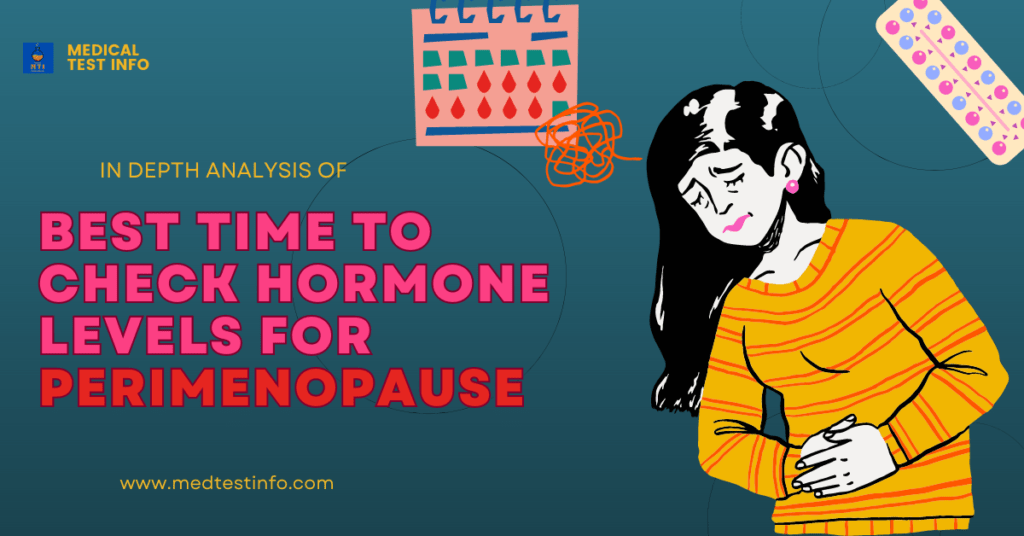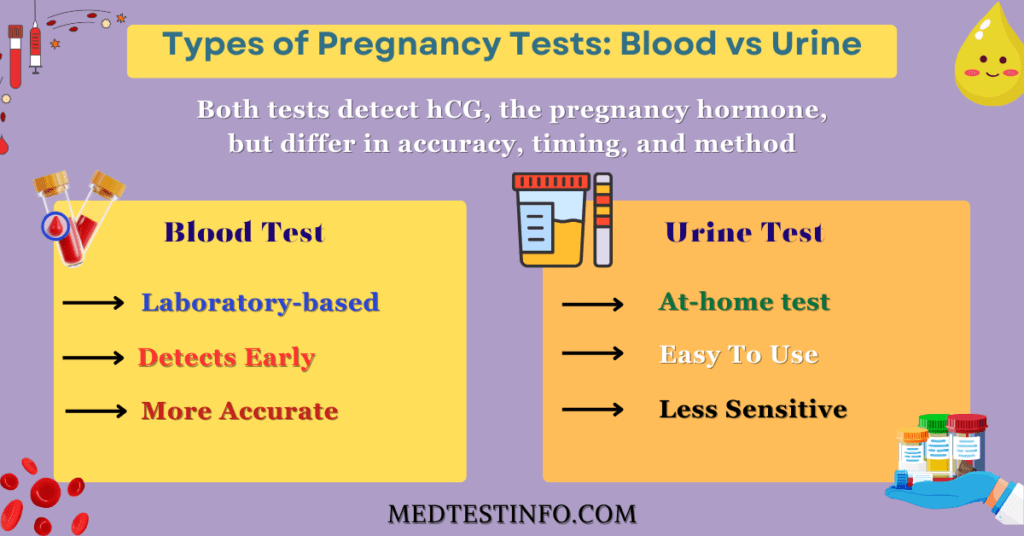
Overview
Perimenopause is a natural transition time for all women as they approach menopause. Shifting hormone levels can create a variety of symptoms, so monitoring these hormones is critical for understanding the body’s changes. Testing hormone levels for perimenopause at the appropriate time can provide valuable insights into what is going on in the body and help guide treatment options. This article will look at the ideal time to assess hormone levels for perimenopause and discuss the numerous elements that influence hormonal balance during this key period.
Why Check Hormone Levels During Perimenopause?
As women age, their hormone levels change, resulting in symptoms including irregular periods, hot flashes, and mood swings. Checking hormone levels for perimenopause can assist in determining that the symptoms are due to hormonal changes rather than other diseases. It also enables healthcare providers to offer personalized treatment, such as hormone replacement therapy, perimenopause vitamins, or lifestyle adjustments.
To fully understand perimenopause, you must know about hormones like estrogen, progesterone, follicle-stimulating hormone (FSH), and luteinizing hormone (LH). These hormones do not remain steady during this period. Thus, knowing when the optimum time to test them is to receive an accurate picture of hormonal health is critical.
Best Time To Check Hormone Level For Perimenopause
Hormonal testing is typically conducted at precise periods during the menstrual cycle to get the most reliable findings. Hormone testing is standard for women during their reproductive years, both early in the menstrual cycle (Day 3) and later (Day 21). However, during perimenopause, periods may become irregular, making it more challenging to choose the optimal time. However, specific broad recommendations can help.
Follicular Phase (Day 3 Testing)
The early follicular phase, which occurs on Day 3 of the menstrual cycle, is the optimal period to test hormone levels for perimenopause, such as FSH and estrogen. When ovarian function declines, FSH levels rise, signifying the start of the perimenopausal phase. Estrogen levels also change, and testing at this time provides a better picture of overall hormonal balance.
Luteal Phase (Day 21 Testing)
Progesterone is another vital hormone to test, and it is best done on Day 21 of your cycle or approximately seven days after ovulation. Measuring progesterone may help prove whether ovulation has occurred and whether there is an estrogen-progesterone imbalance, which is common in perimenopause.
If you have irregular cycles, healthcare professionals may suggest hormone testing at different periods or depending on symptom patterns. Blood tests for the hormone profile can also be scheduled to address specific issues, such as when to test for estrogen levels or potential hormonal imbalances.
Standard Hormone Tests During Perimenopause
As you go through perimenopause, you might experience a range of symptoms due to hormonal changes. Hormone tests are important in helping us understand these changes and manage symptoms more effectively. These are the important tests that help evaluate hormone levels during this phase:
FSH (Follicle-Stimulating Hormone)
As ovarian function begins to decline, FSH levels increase, marking the onset of perimenopause. Higher FSH levels, particularly when checked on Day 3 of your menstrual cycle, can indicate that you are entering perimenopause. This test plays an important role in helping us understand hormonal changes and in shaping the proper treatment approach.
Estrogen (Estradiol)
During perimenopause, estrogen levels can vary significantly, which often results in symptoms such as hot flashes and mood swings. Checking estrogen levels, especially in the follicular phase, can reveal any imbalances that might be present. When estrogen levels drop or vary, it indicates shifts in ovarian function, guiding us in managing symptoms more effectively.
Progesterone
Low progesterone levels often suggest that ovulation is irregular or may not occur at all, which is something many experience during perimenopause. Checking progesterone levels around Day 21 of your cycle can give insights into whether you have ovulated and how estrogen and progesterone work together. When things are out of balance, it can lead to issues such as irregular periods and shifts in mood.
LH (Luteinizing Hormone)
LH collaborates with FSH to help manage the ovulation process. Looking at both hormones together gives us a more complete understanding of ovarian health and how it functions during perimenopause. Higher levels of LH and FSH indicate that you are experiencing the transition phase of menopause.
A comprehensive hormone panel, which includes tests for FSH, estrogen, progesterone, and LH, offers a thorough understanding of your hormonal well-being. Some providers might also check cortisol and thyroid levels to eliminate other factors influencing mood and energy.
Best Time To Check Hormone Levels For PCOS
If you are simultaneously treating other hormonal problems, such as polycystic ovarian syndrome (PCOS), understanding when to test hormones for PCOS is critical. PCOS frequently involves high androgens (male hormones), and hormone testing may be performed at different times than perimenopause testing to detect these imbalances. Doctors may order specific testing based on whether you are concerned about perimenopause, PCOS, or both.
Preparing For Hormone Testing
Proper preparation is essential for obtaining accurate findings. Most hormone blood tests include fasting, and you may need to avoid certain drugs or supplements that can interfere with hormone levels. Tracking cycles or symptoms, even if they are unusual, can help doctors choose the optimum time for testing.
A gynecologist can also do various tests to rule out other reasons for monthly irregularities, such as hormonal imbalances. A menstrual irregularity test panel may be used in conjunction with perimenopause testing to check that symptoms are not related to other reproductive health conditions.
Interpreting Hormone Test Results
When test findings arrive, you should review them with a healthcare professional. They will clarify what hormone levels mean and how they relate to perimenopausal status. If hormone levels are significantly imbalanced, perimenopause treatment may be advised. Hormone replacement therapy (HRT) can help with symptoms, including hot flashes and night sweats, while perimenopause supplements can help with overall health and hormone balance.
Managing Perimenopause: Lifestyle And Supplements
Beyond hormone testing and treatment, lifestyle modifications and supplements can substantially impact. Some of the finest supplements for perimenopause are:
Black cohosh: Black cohosh is known to lessen hot flashes.
Calcium and Vitamin D: Calcium and Vitamin D play a vital role in keeping our bones healthy.
Omega-3 fatty acids: Omega-3 fatty acids are beneficial for mood stabilization.
Women frequently inquire, “Can I get a test for perimenopause?” Yes, healthcare experts can order specialized tests to confirm perimenopause and recommend the best multivitamin for perimenopause to maintain overall health throughout this transition.
Conclusion
The optimal time to assess hormone levels for perimenopause varies according to your cycle, symptoms, and overall health. Understanding the finer points of hormone testing, whether for FSH, estrogen, or progesterone, can help gain control of hormonal health. A combination of reliable hormone tests, guided therapy, and supportive lifestyle modifications can assist to smooth and manage the perimenopausal transition.
Working with a healthcare physician, remaining educated, and making the necessary modifications will ensure you make the most of this critical stage of life.


